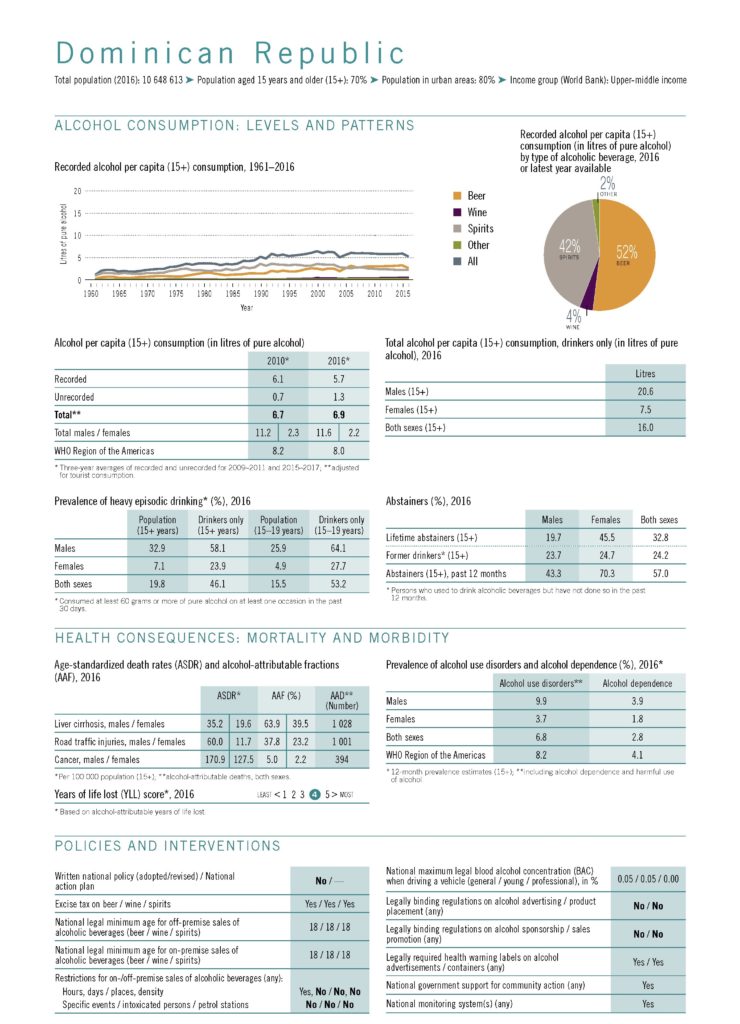The Dominican Republic passed a law on September 21, 2021 to regulate the sale and consumption of alcoholic beverages throughout the national territory.
The provisions of the new law include:
- The prohibition of alcohol consumption on public roads, in vehicles, and motorcycles; and
- The imposition of new rules for places of alcohol sale.
Accordingly, consuming alcohol on public sidewalks, streets, avenues or parks is now not allowed in the country. Anyone violating the law will be fined an amount between one to five minimum public sector wages.
Consuming and transporting alcohol in vehicles and motorcycles is also not allowed. Specifically, alcoholic beverages must not be transferred to vehicle drivers within the passenger area “without factory seal.” Any open alcoholic beverages are to be transported in either the trunk or rear of the vehicle.
The new law has established a licensing system for places selling alcohol as well. All outlets selling alcohol products must apply for a license to proceed with selling alcoholic beverages.
Alcohol harm and policy in the Dominican Republic
As the World Health Organization reports, in the Dominican Republic per capita alcohol consumption among males who use alcohol is at 20.6 liters, which is very high and a serious public health concern. The negative effect can be seen: 9.9% of men live with an alcohol use disorder. Over half of adolescents (53.2%) between the ages of 15 to 19 years who use alcohol engage in binge alcohol consumption. And the country is placed on the higher end for years of life lost due to alcohol.
Considering the harm caused by alcohol, the new law regulating sale and consumption of alcohol is a step in the right direction.
There are other areas worth investing in to prevent and reduce alcohol harm and boost development. The WHO recommended three Best Buy policies – taxation, advertising bans, availability limits – and the SAFER package provide an excellent blue print for policymakers looking to improve alcohol policies and protect citizens from harm.
